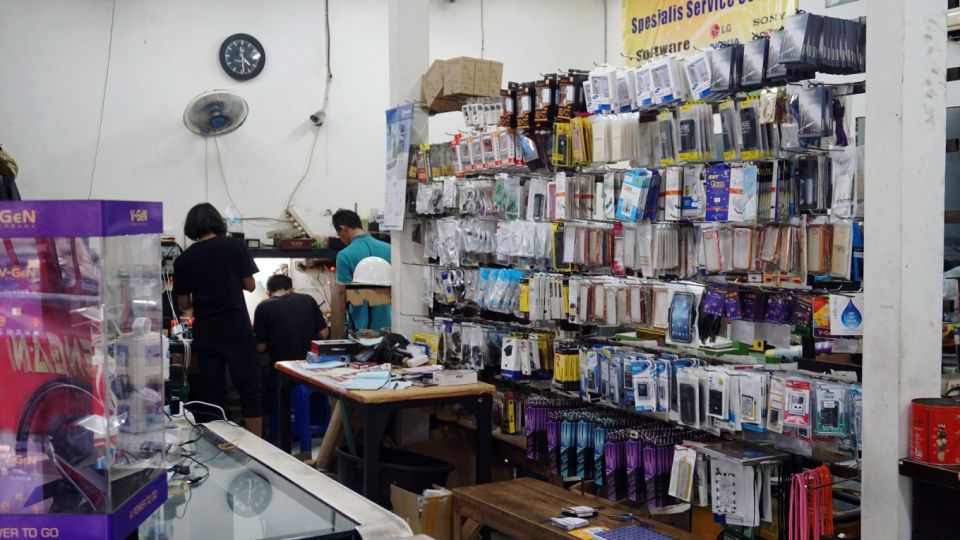April 17, 2025
JAKARTA – Retail sales in March barely saw any growth despite the boon from Ramadan and Idul Fitri holidays, which normally spike consumption.
According to preliminary data published by Bank Indonesia (BI) on Wednesday, the retail sales index (RSI) for March was estimated to have inched up to 236.7, marking a marginal 0.5 percent yearly increase from 235.4 in March of last year.
BI spokesperson Ramdan Denny Prakoso said in a press statement released together with the data that the growth was “aligned with demand increase” during Ramadan and Idul Fitri coupled with discounts offered by retailers during the festive season.
Spare parts and accessories for cars and motorbikes saw the strongest annual growth in March with a 6.4 percent year-on-year (yoy) increase, followed by cultural goods and recreation with 1.6 percent and food, beverages and tobacco with 1.4 percent.
The sale of spare parts and accessories have been consistently growing since at least last August and despite the positive note, March’s increase was weaker than the 16.1 percent growth recorded in February.
Groups of other goods, meanwhile, experienced an annual sales decline in March, with information and communication devices plunging the most by 9 percent yoy. Sales growth in this category has been sitting in the negative territory since at least August of last year.
Respondents to the survey said they were more optimistic about the outlook for the next three and six months, as they expect sales to increase in May and August, thanks to Independence Day on Aug. 17.
They also expect inflationary pressure to go down in May only to go up and plateau over the next three months.
March’s weak retail sales growth was in sync with fewer people choosing to go for mudik homecoming trips.
Read also: Pertamina aviation fuel sales dip as ‘mudik’ travel declines
Transportation Minister Dudy Purwagandhi said on Saturday that this year’s mudik saw over 154.6 million people return to their hometowns, or 4.7 percent fewer than last year’s 162.2 million, as quoted from Tempo.
He claimed that the decline was not correlated with diminishing spending power despite experts and businesses suggesting that this may be the case, particularly because of the bleak state of the economy amid mass layoffs across multiple sectors.
A consumer confidence index (CCI) survey released by the central bank a day before revealed that consumer confidence has continued its downward trend in March as it dropped to 121.1 from 126.4 in February.
Read also: Consumer confidence sinks to five-month low as economic anxiety grows
In a separate statement, Denny said the decline reflected growing pessimism over both current economic conditions and future expectations.
The drop was broad-based, with all six sub-components weakening, reflecting deeper unease about both current conditions and future expectations.
The sharpest decline came from perceptions of job availability, which plunged 8.3 points to 125.9. Views on job conditions compared with six months ago dropped to near-neutral territory, falling 5.9 points to 100.3.
The sustained drop in consumer sentiment also coincided with over 90,000 layoffs since 2024 and sluggish consumer spending in the first quarter, particularly among the urban middle class.


